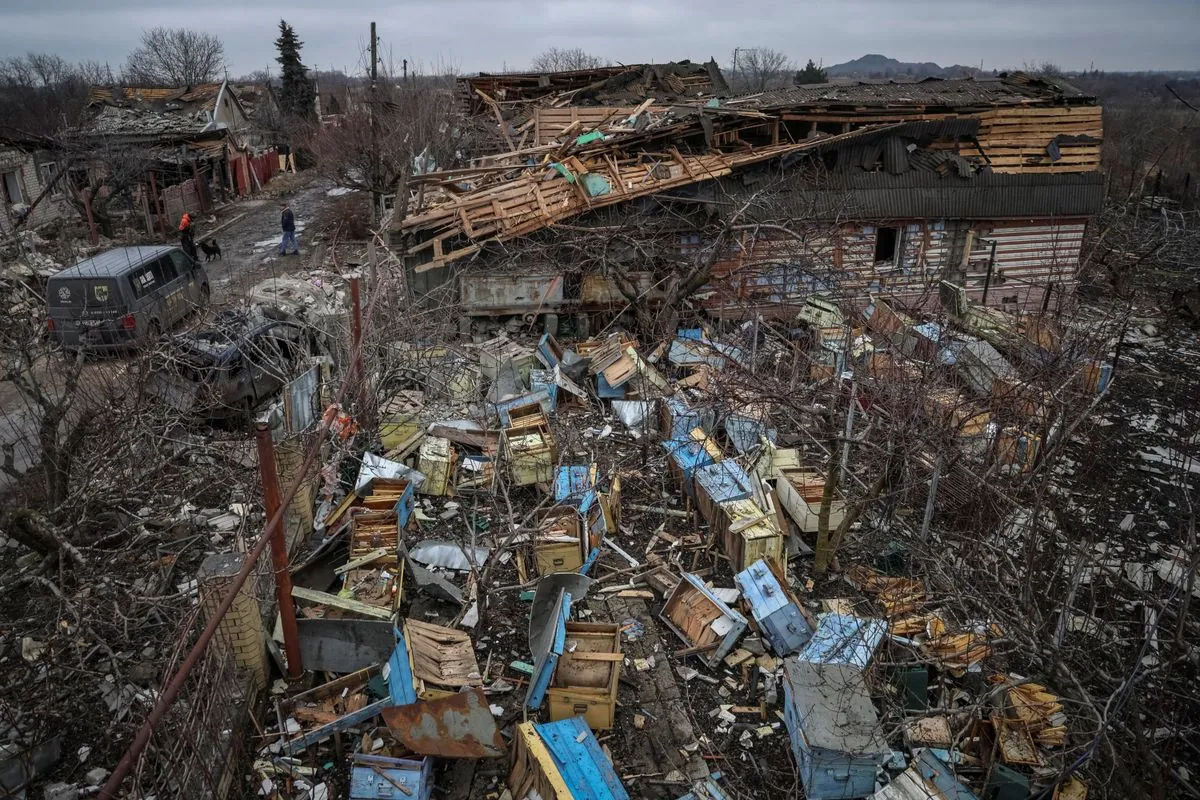Strategic Ukrainian City of Pokrovsk Under Threat as Russian Forces Advance
Russian troops rapidly approach Pokrovsk, a vital logistics hub in Donetsk region. Ukrainian forces, outnumbered and under-resourced, struggle to defend the city as residents evacuate.

The strategic Ukrainian city of Pokrovsk faces an imminent threat as Russian forces advance rapidly, potentially jeopardizing Ukraine's hold on the Donetsk region. This development comes six months after the capture of Avdiivka by Russian troops in February 2024.
Daria Korkh, a 39-year-old resident of Pokrovsk, exemplifies the difficult situation faced by locals. "We don't want to, but we've got to," she stated, referring to the necessity of evacuation. The city's infrastructure is deteriorating, with shops closing and essential services becoming unreliable.

The Russian advance has accelerated in recent weeks, with Ukrainian military sources reporting unprecedented speed. A commander of a Ukrainian aerial reconnaissance unit described the situation: "We don't have infantry, we don't have enough artillery or shells. We don't have enough drones." The Ukrainian forces are reportedly outnumbered by at least five to one.
Pokrovsk, founded in 1875 as a railway station, has evolved into a crucial logistics hub for Ukrainian operations in the Donbas region. The city's strategic importance lies in its position on key road and rail links that sustain Ukrainian garrisons in other parts of Donetsk Oblast.
The Centre for Defence Strategies (CDS), a Ukrainian think tank, predicts that Russian forces may reach Pokrovsk by mid-September 2024. This assessment is based on the current rate of advance and the 4:1 advantage in forces and resources that Russia enjoys in this sector.
The situation in Pokrovsk appears to be a direct consequence of Ukraine's Kursk operation in early August 2024. This operation, intended to draw Russian troops away from the Donbas front, has not achieved its desired effect. Instead, Russian forces have intensified their efforts in the Pokrovsk direction.
As the threat looms, Pokrovsk is rapidly shutting down. Roman Zhylenkov, a volunteer with the evacuation group Skhid SOS, reported: "Pokrovsk is changing in front of our eyes. Just two days ago there was some traffic, but today it was almost empty." Essential services, including banks and hospitals, are relocating or ceasing operations.
The potential fall of Pokrovsk would have significant implications for Ukraine's defense of the region. It would complicate logistics for Ukrainian troops in key areas such as Toretsk, Chasiv Yar, and the "fortress" agglomeration of Sloviansk, Kramatorsk, and Kostiantynivka.
Despite the grim outlook, the battle's outcome remains uncertain. Ukrainian sources claim that Russian forces are suffering heavy casualties and may struggle to maintain their current pace of advance. Some speculate about potential Ukrainian counterstrategies or the possibility of Russian forces being diverted to other fronts.
For residents like Daria Korkh, the situation is deeply personal. "I only wanted to live in Donbas. I only wanted to grow old in Donbas," she expressed emotionally. The forced evacuation represents not just a physical displacement but a profound loss of identity and home.
As Pokrovsk braces for potential conflict, its fate may well determine the course of the war in eastern Ukraine. The coming weeks will be crucial in determining whether Ukrainian forces can mount an effective defense or if Russian troops will succeed in their push to control this vital strategic point in the Donetsk region.
"For me, it's like my own, individual death."


































